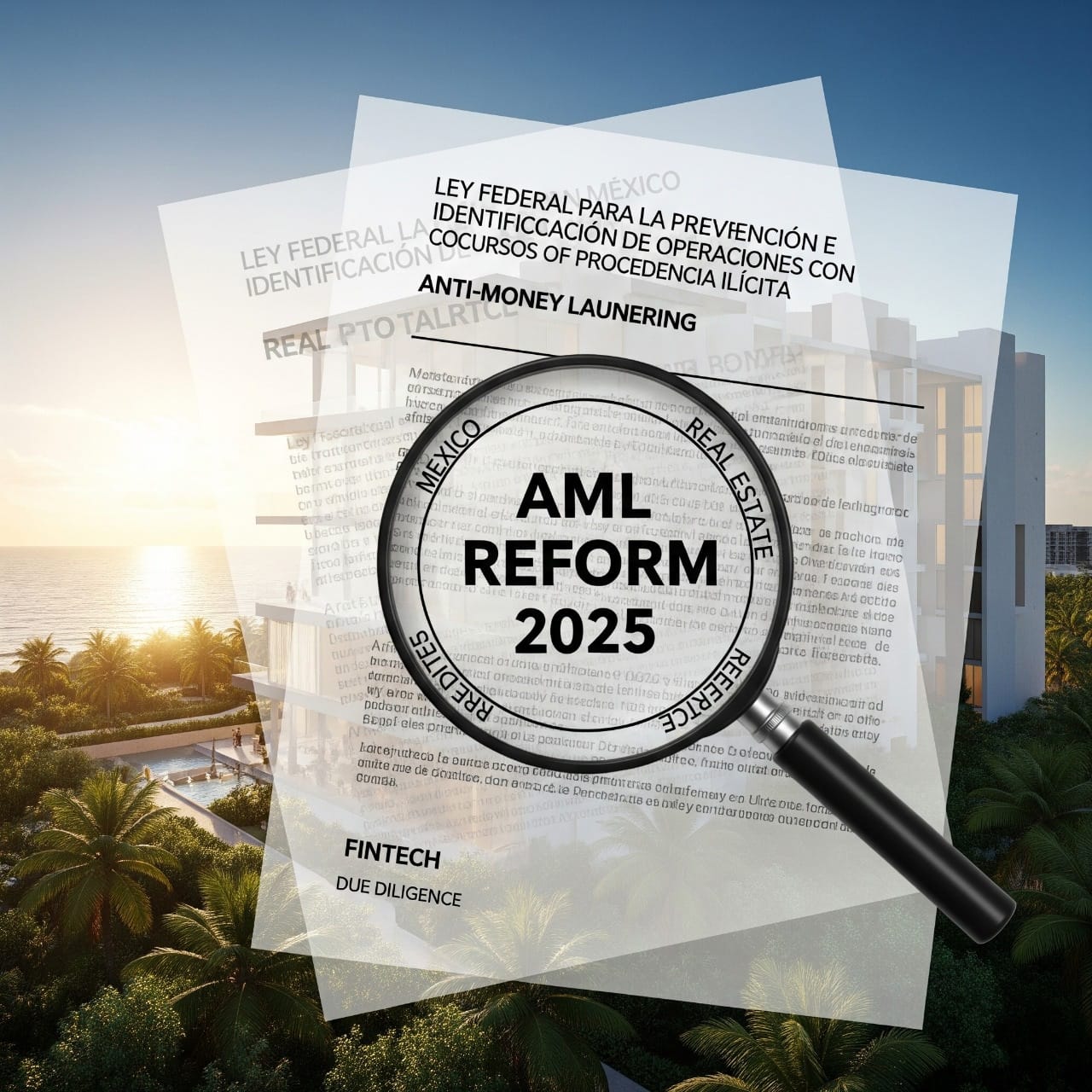Mexico’s 2025 AML Reform: What Every Foreign Real Estate Investor Needs to Know
A major change is coming to property transactions. Learn how the Mexico AML Reform 2025 for real estate will impact your investment.
Investing in the Riviera Maya offers a unique slice of paradise. However, the way real estate transactions are conducted in Mexico is about to change significantly. In a major legislative move, Mexico approved a comprehensive reform to its Anti-Money Laundering (AML) law in June 2025. This is not just a minor update. Instead, it represents a fundamental restructuring of the rules designed to protect the financial system. For foreign investors, understanding these changes is crucial for a secure and successful purchase.
This new legal framework was created to align Mexico with demanding international standards. As a result, it introduces a much higher level of scrutiny for all property deals, especially those involving foreign capital. The goal of the
Mexico AML Reform 2025 for real estate is to increase transparency and combat illicit financial flows. Therefore, preparing for these new requirements is now a vital part of your investment journey.
Why is This Happening Now? Aligning with Global Standards
The 2025 reform of Mexico’s AML law is not a purely domestic decision. Its urgency comes from the need to meet standards set by the Financial Action Task Force (FATF). The FATF is an international body that develops policies to combat money laundering and terrorism financing. Following a 2018 evaluation, the FATF identified significant weaknesses in Mexico’s legal framework. The report specifically pointed to measures applied to non-financial sectors, which includes real estate.
Furthermore, the FATF is beginning a new round of evaluations with a different focus. These new evaluations look less at whether laws simply exist and more at their effective application and tangible results. The risk of receiving a poor rating and being placed on a “grey list” created significant pressure on the Mexican government to act decisively. This reform is a clear signal of Mexico’s commitment to fighting money laundering and protecting its financial system. In addition, the new rules address emerging risks, such as the use of virtual assets and complex corporate structures to hide the identity of true owners.
The Four Pillars of the Mexico AML Reform 2025 for Real Estate
The transformation of Mexico’s AML regime is built on four powerful pillars that directly impact every real estate transaction. Together, they represent a fundamental shift from a reactive to a proactive and preventive system.
First, the law mandates a Risk-Based Approach (RBA). Compliance is no longer a simple box-ticking exercise. Instead, all parties involved must conduct a documented risk assessment for their own business and for each client. This means due diligence measures will no longer be uniform; they must be proportional to the risk each client represents.
Second, there is a much deeper scrutiny of the Beneficial Owner (BO). This pillar directly attacks the use of shell companies or opaque trusts to hide the true owner of a property. The ownership threshold for determining control is now just 25%. More importantly, the definition now includes “effective control” over an entity, even without an ownership stake. Obligated parties must identify this person and collect documentation to prove it.
Third, the reform imposes new Technological Mandates and Faster Reporting. Recognizing that manual processes are inadequate, the law requires automated systems to continuously monitor client operations. Alongside this, the deadline for reporting suspicious transactions has been drastically reduced to just 24 hours. This applies not only to completed deals but also to those that were merely attempted.
Fourth, the reform formally includes “Real Estate Developers” as fully responsible obligated entities. This change eliminates any past ambiguity and makes them active guardians of the financial system. Their AML obligations now begin from the earliest stages of a project, such as raising capital from investors or accepting pre-sale payments.
What This Means for Your Riviera Maya Investment
The impact of these changes on foreign buyers is both immediate and profound. While the new rules present challenges, they also aim to strengthen the integrity and reputation of the Mexican real estate market in the long run. By aligning with the highest international standards, the reform can foster greater confidence among high-quality investors.
For your next purchase, you must be prepared for an unprecedented level of scrutiny. Due diligence is intensified, and full transparency is now completely non-negotiable. You will face more detailed questions about your financial history and the lawful origin of your funds. Notaries Public will act as a much stricter filter before formalizing any deed. Consequently, this may lead to longer closing times as all parties adapt to the new, deeper verification process.
Navigating this new environment requires careful preparation and expert guidance. The complexity of the new obligations creates a critical demand for specialized legal advice in regulatory compliance and risk management. Working with a knowledgeable legal team is no longer just a good idea; it is a fundamental necessity to ensure the legal certainty and success of your investment in Mexico.
Facing a real estate transaction under the new Mexico AML Reform 2025 for real estate rules in the Riviera Maya? Don’t navigate it alone. Contact PeninsuLawyers to protect your investment and secure your property rights.



